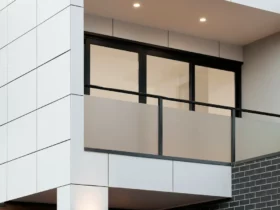Owning a house is most certainly one of the most crucial things you can have in your possession. That’s why you need to do everything that’s in your power to ensure it’s not only comfortable but safe and protected too.
There are many things that you can do to achieve that. One of the most effective tools that can be used in these instances is a home insurance policy, which, according to some, is very extensive.
And that’s not far from the truth. But how can you select the right one? There are certain features that you need to take into consideration in order to be sure that you picked the best one. If you want to know what are the most essential features, then take a look at these below.
Let’s Start With The Cover For The Structure
This is generally the best part of each home insurance policy. It is a feature that practically every home insurance for local homeowners must contain. Why is this so essential? Namely, its main goal is to safeguard the physical structure of your home, building, and/or dwelling against numerous threats and damages.
Additionally, this type of coverage covers the structure of your house, which normally refers to the electrical apparatus, building, AC plumbing, heating, and many other things. Speaking of the house insurance, keep in mind that the land on which your structure was built is never included in the home insurance coverage.
Don’t Forget The Comprehensive Coverage
One of the most pivotal features as far as this type of insurance is concerned is precisely this one. So what does it include? Namely, it includes various potential losses and damages that may come along the way.
Furthermore, it normally encompasses structural damage to your property, like the one that was caused by hail, fire, and wind, along with the damage or loss of the items that you have in your possession that have been stolen.
Even though all of this sounds perfect, remember that it’s not as ideal as it may seem at first glance. How come? Well, that’s because it comes with several restrictions. It doesn’t include specific perils, like earthquakes, floods, or wear and tear.
If you live in a region that’s susceptible to all these elements, it would be smart to consider other important features that may further protect your house. Those who would like to take this feature into account, shouldn’t only rely on the current state of their house.
They need to take into consideration the risks that are involved based on the area they reside in, along with the lifestyle they lead. Ask yourself, does the location you live in oftentimes deal with heavy snowfall or hurricanes?
Do you own anything that’s very valuable that may attract potential burglars? You must consider all these things before you opt for a particular comprehensive coverage, because, after all, you need to do whatever it takes to properly protect the space you live in.
Protection Against Third-Party Liability
So what does this mean? If by any chance, your neighbor, or any other person accidentally hurts themselves or deals with any type of damage concerning their property, and you’re the culprit, then you can rely on the home insurance to cover these damages and losses.
Even though the amount of money that’s going to be covered mostly depends on the policy you selected, keep in mind that the home insurance is going to help you tackle various legal costs in case you are forced to take things to court.
Let’s Discuss Cover For Alternate/Extra Accommodation
Here’s another critical element of home insurance that shouldn’t be overlooked. It’s also known as the Loss of Use cover. So what’s the point of it? Namely, its goal is to reimburse the homeowner for a variety of living costs that may arise, in case your house is damaged in any way, or ruined by an insured cause.
These costs that are normally encompassed under this section usually involve additional rent, food, travel, and many other sorts of costs that were caused by a homeowner for various living arrangements.
It’s of huge importance to keep all your receipts concerning the expenses you had during this period of time (referring to the temporary living arrangement for insurance purposes).
Learning All About The Reasonable Deductibles
This type of home insurance policy is what you agreed upon to pay out of your own pocket when you file a lawsuit. This is generally an essential element when it comes to insurance expenses and the entire claim process.
To put things simply, your house deals with a huge amount of damage. Let’s say it’s around $10,000, and your deductible is approximately $1,000. You would need to set aside some cash ($1,000) for the repairs, while the rest is going to cover the rest.
Normally, a very high deductible leads to a lower premium (the amount of cash you paid for the policy) and vice versa. So how can you pick the right deductible? It would be smart to opt for the one that you can actually afford.
There’s no point in having a lower premium if a high deductible would negatively impact your current financial situation once you decide to file a claim. On the other hand, if you can manage a deductible that’s relatively high, in these instances, you’d be able to save a lot of money on the premium.
The whole point is to find some sort of balance that’s going to help you properly assess the risk tolerance and the amount of money that’s at your disposal.
Living Lost Coverage
If God forbid, your house is damaged because of any natural disaster, or one that’s caused by somebody, then your insurance cover is going to handle any extra living costs that you’ll be having in the future, such as your move to another place until your house is repaired.

As you can see, home insurance encompasses so many spectacular features that you can rely on in case of any type of incident or disaster. Therefore, you should go through this guide to see which feature may be the most suitable for you right now.








